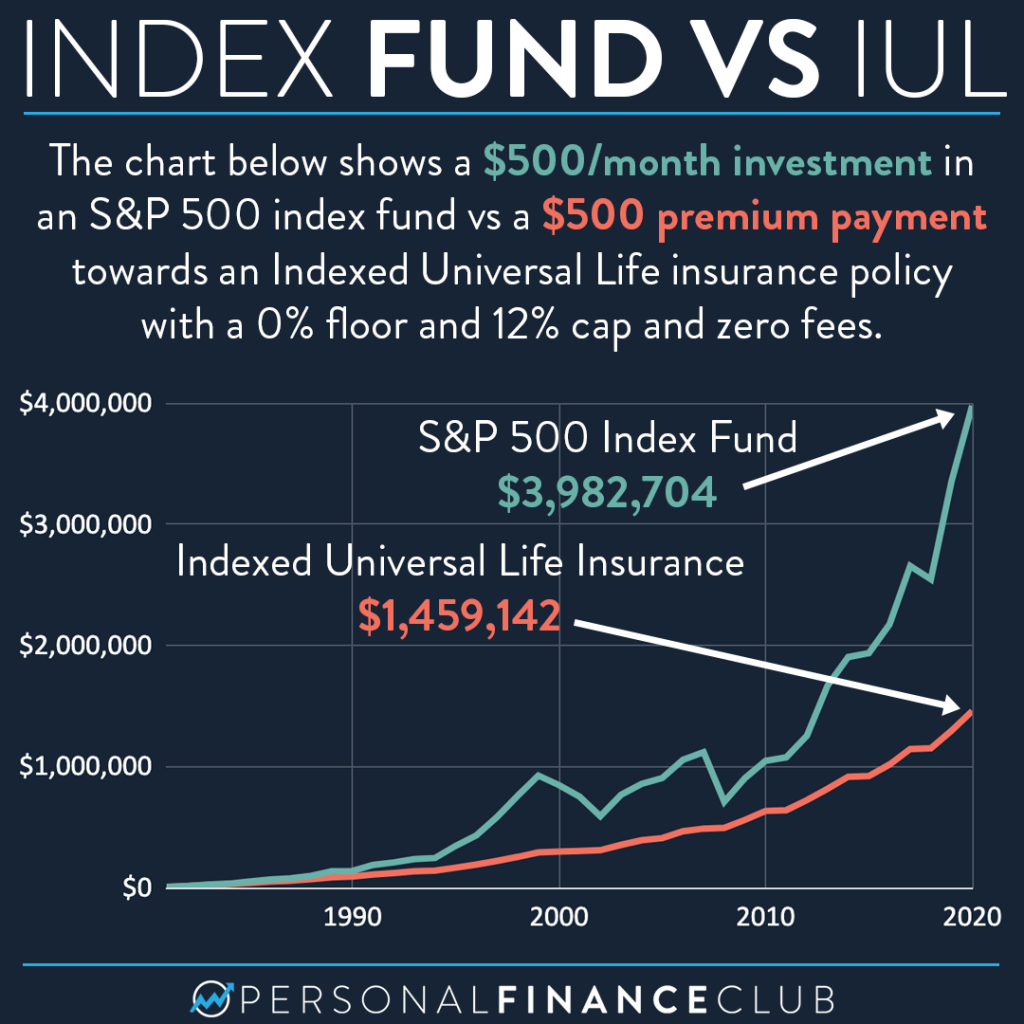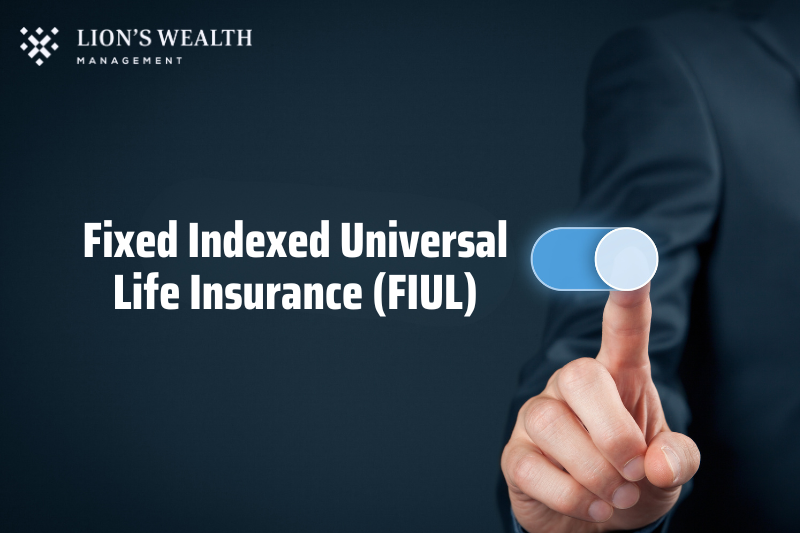All Categories
Featured
Table of Contents
Do they contrast the IUL to something like the Vanguard Overall Supply Market Fund Admiral Shares with no lots, an expense ratio (EMERGENCY ROOM) of 5 basis points, a turnover ratio of 4.3%, and a remarkable tax-efficient record of distributions? No, they contrast it to some awful proactively taken care of fund with an 8% load, a 2% EMERGENCY ROOM, an 80% turnover ratio, and an awful record of short-term resources gain distributions.
Mutual funds commonly make annual taxed distributions to fund owners, even when the value of their fund has decreased in value. Common funds not just need revenue reporting (and the resulting yearly tax) when the common fund is rising in worth, but can additionally enforce earnings taxes in a year when the fund has dropped in value.
That's not exactly how common funds function. You can tax-manage the fund, harvesting losses and gains in order to reduce taxable circulations to the capitalists, but that isn't in some way mosting likely to transform the reported return of the fund. Just Bernie Madoff kinds can do that. IULs prevent myriad tax catches. The possession of common funds might require the common fund owner to pay approximated tax obligations.

IULs are very easy to place to make sure that, at the owner's death, the recipient is exempt to either revenue or inheritance tax. The same tax obligation reduction methods do not work virtually also with mutual funds. There are various, often expensive, tax obligation traps related to the timed purchasing and marketing of shared fund shares, catches that do not put on indexed life Insurance.
Chances aren't very high that you're mosting likely to go through the AMT because of your mutual fund circulations if you aren't without them. The rest of this one is half-truths at finest. For example, while it is real that there is no earnings tax obligation due to your successors when they acquire the profits of your IUL plan, it is additionally real that there is no income tax as a result of your successors when they inherit a shared fund in a taxed account from you.
Ideal Universal Life
There are far better ways to stay clear of estate tax issues than purchasing investments with reduced returns. Common funds may trigger revenue taxation of Social Safety and security benefits.

The development within the IUL is tax-deferred and might be taken as free of tax earnings through finances. The plan proprietor (vs. the shared fund supervisor) is in control of his/her reportable income, hence allowing them to lower or perhaps remove the taxation of their Social Safety and security benefits. This is excellent.
Here's another minimal problem. It's real if you acquire a shared fund for say $10 per share just prior to the distribution day, and it distributes a $0.50 circulation, you are then mosting likely to owe tax obligations (most likely 7-10 cents per share) regardless of the truth that you have not yet had any gains.
In the end, it's actually concerning the after-tax return, not exactly how much you pay in tax obligations. You're also possibly going to have even more money after paying those taxes. The record-keeping requirements for having shared funds are dramatically a lot more intricate.
With an IUL, one's documents are maintained by the insurer, copies of annual declarations are mailed to the owner, and distributions (if any kind of) are completed and reported at year end. This one is additionally sort of silly. Naturally you ought to keep your tax records in instance of an audit.
Universal Life Insurance Reviews
Rarely a factor to get life insurance policy. Mutual funds are generally component of a decedent's probated estate.
Additionally, they go through the hold-ups and costs of probate. The profits of the IUL plan, on the other hand, is constantly a non-probate distribution that passes beyond probate straight to one's named recipients, and is therefore not subject to one's posthumous creditors, unwanted public disclosure, or comparable hold-ups and prices.
Medicaid disqualification and life time income. An IUL can give their proprietors with a stream of income for their whole life time, no matter of exactly how long they live.

This is valuable when arranging one's affairs, and transforming assets to earnings before an assisted living facility confinement. Shared funds can not be converted in a comparable manner, and are often considered countable Medicaid assets. This is an additional foolish one advocating that bad individuals (you recognize, the ones that need Medicaid, a government program for the poor, to spend for their assisted living facility) ought to make use of IUL as opposed to shared funds.
Universal Life Insurance Reviews
And life insurance policy looks awful when compared fairly versus a retired life account. Second, individuals who have cash to buy IUL over and past their retirement accounts are going to have to be terrible at managing cash in order to ever get Medicaid to pay for their retirement home costs.
Chronic and terminal health problem motorcyclist. All plans will enable an owner's simple accessibility to cash from their policy, typically forgoing any type of abandonment penalties when such people suffer a major ailment, need at-home care, or end up being confined to an assisted living facility. Mutual funds do not provide a similar waiver when contingent deferred sales fees still relate to a mutual fund account whose proprietor requires to market some shares to money the expenses of such a stay.
Veterans Universal Life Insurance
You obtain to pay even more for that advantage (rider) with an insurance coverage policy. What a good deal! Indexed universal life insurance policy supplies survivor benefit to the beneficiaries of the IUL proprietors, and neither the owner neither the beneficiary can ever before lose money as a result of a down market. Shared funds offer no such assurances or survivor benefit of any kind.
Now, ask on your own, do you really need or desire a survivor benefit? I certainly don't need one after I reach monetary freedom. Do I want one? I suppose if it were affordable sufficient. Certainly, it isn't affordable. Typically, a purchaser of life insurance policy pays for the real cost of the life insurance policy benefit, plus the expenses of the policy, plus the profits of the insurance provider.
Life Insurance Tax Free Growth
I'm not entirely sure why Mr. Morais tossed in the entire "you can't shed cash" again here as it was covered rather well in # 1. He simply desired to repeat the most effective marketing point for these points I suppose. Again, you don't shed nominal bucks, however you can shed genuine bucks, in addition to face serious possibility cost due to reduced returns.

An indexed universal life insurance coverage plan owner might exchange their plan for an entirely various policy without activating earnings tax obligations. A shared fund proprietor can not move funds from one mutual fund business to another without selling his shares at the previous (therefore causing a taxed event), and buying brand-new shares at the latter, typically based on sales charges at both.
While it is true that you can trade one insurance coverage policy for one more, the factor that individuals do this is that the very first one is such a dreadful policy that also after purchasing a new one and experiencing the early, adverse return years, you'll still appear ahead. If they were sold the best policy the very first time, they should not have any kind of desire to ever exchange it and go through the early, adverse return years again.
Latest Posts
Whole Life Versus Universal Life
Index Universal Life Insurance Quotes
Variable Universal Life Insurance Calculator